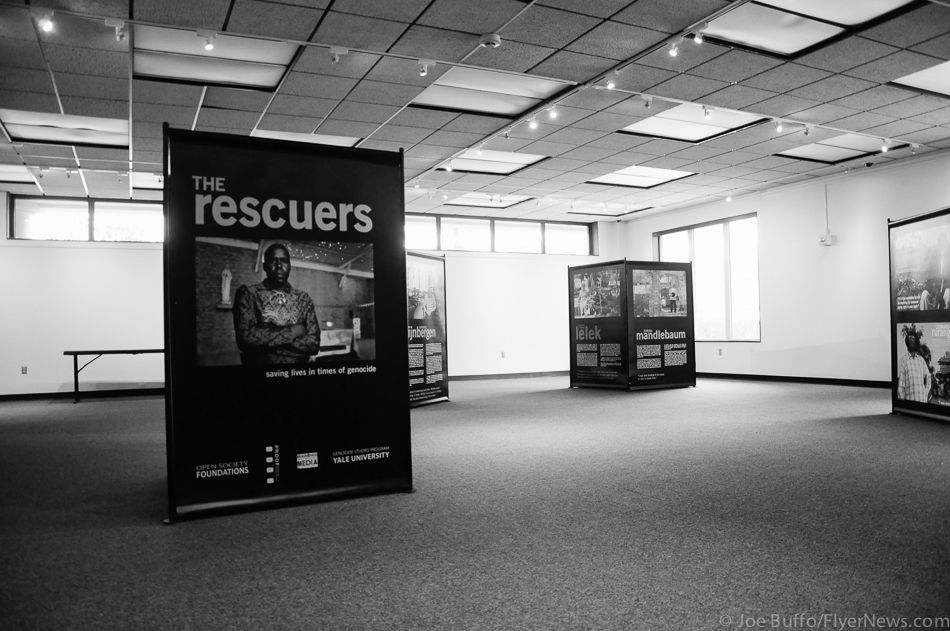Library exhibit spotlights courageous rescuers
By: Caitlin Schneider – Staff Writer
“Picturing Moral Courage: The Rescuers” is a featured exhibition that opened Feb. 2 in Roesch Library. The event is sponsored by the University of Dayton’s Human Rights Center.
The exhibit includes 21 portraits and personal accounts from survivors of genocide and mass atrocities who risked their lives to rescue people from enemy groups. These ordinary people recount their heroic stories from the Holocaust and the genocides in Rwanda, Bosnia-Herzegovina and Cambodia.
“The Rescuers” was created by PROOF: Media for Social Justice, a nonprofit organization that creates visual documentary projects for genocide prevention and peacebuilding. PROOF’s goal is to empower future generations to work for social change.
Leora Kahn, the founder and executive director of PROOF, was a featured speaker at The Social Practice of Human Rights, an academic conference that was held at UD in 2013.
According to UD political science professor Joel Pruce, Kahn spoke eloquently on PROOF’s work in the area of visual storytelling. She later approached the Human Rights Center about hosting one of her exhibits on campus.
“[‘The Rescuers’] stood out to me for, among other reasons, its ability to fit well with the Rights.Rites.Writes. theme of ‘Faith and Reason,’” Pruce said.
The exhibit is designed to raise awareness for the need to stand up to the injustices in the world. People are invited to read these stories and reflect on their own choices within society. According to Kahn, everyone has the ability to be a rescuer.
The four photographers in the exhibit each covered a different genocide. Riccardo Gangale focused on Rwanda, Sonia Folkman on the Holocaust, Nicolas Axelrod on Cambodia and Paul Lowe on Bosnia.
“The pictures are arresting because they capture these individuals in mundane, everyday places: living rooms, back yards, etcetera,” Pruce said. “The contrast of how regular these people are with how courageous their actions were is compelling.”
The project began in Rwanda where Kahn interviewed 30 rescuers. Photos and stories from the Holocaust and from Cambodia and Bosnia came after. These ordinary people told her their stories about how they risked their own lives to save others during the Rwandan genocide. According to Kahn, most of these people had never shared their stories before and felt empowered after they did.
“When you are looking at genocide, you don’t often hear about rescuer stories,” Kahn said. “I really think you learn more from studying the good things that people can do.”
“The Rescuers” has been showcased around the world in cultural heritage sites, museums and on college campuses.
“I hope students will learn about these crises and reflect on questions like: ‘How would I act, if ever faced with life and death choices?’” Pruce said. “Ordinary individuals can make decisions every day that affect others – but in a way that goes beyond mere charity.”
“You too can, inch by inch, little by little, do acts that are social justice acts,” Kahn said.
The exhibit will be held in the first floor gallery of Roesch Library through Feb. 27. It is free and open to the public during regular library hours.


